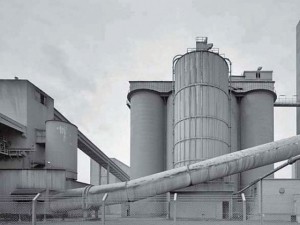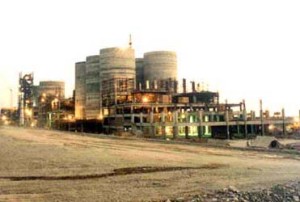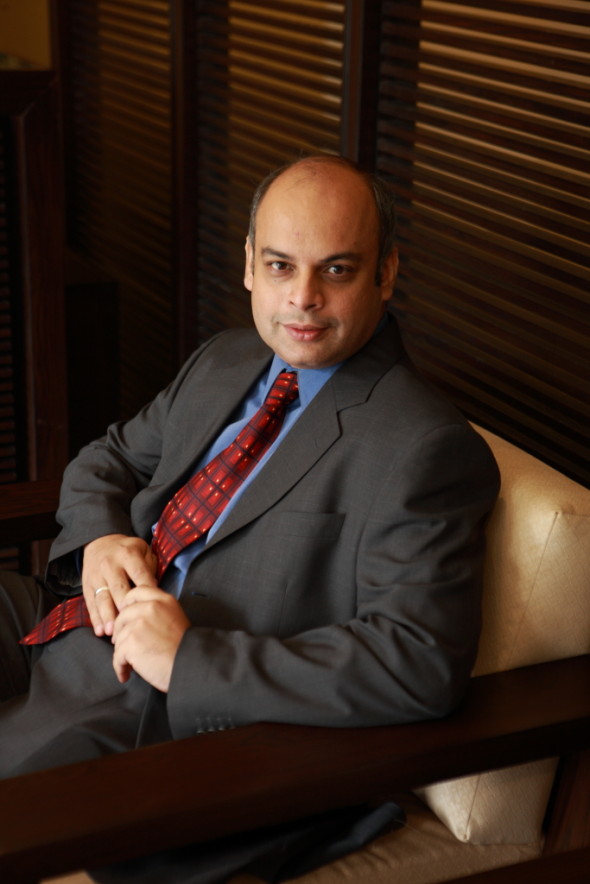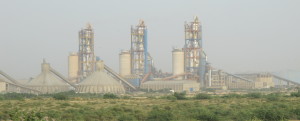Given Pakistan’s ongoing economic fragility, what factors have contributed to Lucky Cement’s outstanding success in the local market?
Noman Hasan: “Lucky Cement has always been gifted with exceptional leaders, who have paved the way towards long-term success for this organization. Being the largest cement manufacturer in the country, we reap the benefits of economies-of-scale enabling us to maintain overhead costs and an edge over other competitors due to lower fixed cost per ton. Through continuous research and development and an emphasis on optimum resource utilization, our operational cost is closely monitored and controlled resulting in increased efficiency and reduction in expenses. We make technology work with us, and have the reputation of making timely investments in our infrastructure to maintain the cost edge. A first mover’s advantage in adopting technologies such as Refuse Derived Fuel (RDF), Tyre Derived Fuel (TDF) and Waste Heat Recovery (WHR) shows our proactive strategy to achieve and maintain our leadership position in Pakistan.”
What prompted Lucky Cement to start regional exports and will there be a growth in exports going forward?
NH: “Pakistan has emerged as a significant regional exporter of cement, thus the decision to start exports was a strategic one. As growth in the domestic market receded, Lucky Cement started exporting cement and in 2007 became the first Pakistani company to export loose cement through sea. We set up our own infrastructure at Karachi port for ease in ship loading, and were able to tap into lucrative international markets in Sri Lanka, India, South Africa, Afghanistan and other adjoining regions. Our proactive initiative of setting a strong foothold in export markets enabled us to capture key dealers in the international market, with whom we foster a mutually beneficial long term relationship.
The cement industry has played a major role in the socio-economic development of Pakistan. With its significant contribution to the GDP, we can safely conclude that it is a growing industry. For the last many years, the cement industry has been a major contributor in Pakistan’s exports, and has provided the country with precious foreign revenue. Export volumes can witness further growth if the Government helps in reducing non-tariff-barriers in the regional markets, as there is promising potential in exports of cement from Pakistan. Renewed development trends are being witnessed in the Middle East and East African markets. Projected sales to India can rise. Bangladesh and Sri Lanka are steady markets for export of clinker. As the political and security situation improves in Afghanistan and Iraq, demand of cement will increase. Exploring new markets, like Egypt and Myanmar, will be worthwhile.
Overall I think the future is very promising for the Pakistani cement industry.”

How has Lucky Cement ensured excellence in its HR recruitment and intellectual capital?
NH: “At Lucky Cement, we know our future depends on our ability to find and retain the best people from the talent pool. We believe that the success of our ambitious business plans has a direct bearing on the quality of human resources we possess as we are determined to grow through building people’s capacity.
For the last couple of years, Lucky Cement has been on a high growth pedestal. To keep up with the business needs and pace, each day we aim for a higher level of performance and excellence. We keep talented people satisfied and motivated by providing them positions of responsibility and value where they are challenged to achieve their full potential.
I think the key to ensure excellence in HR is a good performance management strategy. Our strategy successfully relates to each business activity of the organization set in the context of its human resource policies, culture, styles and communications systems. We make sure our teams and individuals are aligned and their performance is focused towards organizational goals. In the recent past we have further improved our Performance Management process by introducing potent measures and practices, with a system designed for fairness and transparency.”
Lucky Cement has undertaken extensive CSR projects and was recently awarded the National CSR Excellence accolade, what areas does Lucky Cement focus on in its CSR strategy?
NH: “Lucky Cement emphasizes on weaving corporate social responsibility into its very fabric as it firmly believes that it is vital to the long- and short-term profitability of an organization.
Our CSR focus areas include environment, education and community development, under which we are running a number of health and educational projects for local communities around us. These include patronage to hospitals in KPK province, construction of dispensaries in Pezu, Lakki Marwat, support for the Women and Children Hospital (WCH) at Ghaznikhel and supporting the Mother and Children Health Care at Machar Colony, Karachi, to name but a few.
Lucky Cement generously contributed in building the Abdul Razzak Tabba Academic Block at Institute of Business Administration (IBA), Karachi, named after its late founder. The three-storied academic block covers an area of 51,300 square feet and has state-of-the-art facilities for enhancing the quality of education provided to students. We also undertook an educational initiative by building a state-of-the-art Lucky City School at Pezu which is being managed by our staff at Pezu Plant.
We continuously provide financial assistance on merit to students within Pakistan, and have also supported students at international universities such as Magdalene College, Oxford – UK, St. John’s College, Cambridge – UK, University of Oxford and New York University in the disciplines of Engineering, Medicine and Computer Sciences.”

Sustainable development has been a very important issue for Lucky Cement, what is the company’s approach to propagating sustainable development?
NH: “We adhere to a comprehensive Environmental Management and Monitoring Plan which pertains to environmentally sustainable practices with respect to our operations.
Recently, we were awarded significant carbon credit allowances for pro-environment operations of our Dual-Fuel Project at Pezu Plant, approved by the Kyoto Protocol under the Clean Development Mechanism (CDM). We have also setup a plant to replace coal with tire derived fuel (TDF) to ensure that eco-friendly practices formulate an integral portion of our daily plant operations.
We have joined hands with the Government of Pakistan to advocate the President’s Forestation Program and completed planting 25,000 tree saplings all over the country this year.
Lucky Cement believes in transparency of operations, and it is for this reason we embarked on preparing our sustainability report in 2011. In 2012, our sustainability report titled ‘Active Sustainability 2012’ was awarded an A+ level check from the Global Reporting Initiative (GRI), making Lucky Cement the first company in Pakistan to receive this rating.”
What are Lucky Cement’s health and safety standards for its factory employees?
NH: “We try to foster an environment that empowers the concept of “prevention is better than cure”. We envision a hazard-free future and believe that investments in infrastructure as well as various trainings and workshops for our employees will inculcate safety and health prerequisites in our daily operations. We are strengthening the Health, Safety & Environment (HSE) function whose job is to introduce policies and procedures, identify loopholes and suggest improvements, ultimately inculcating the HSE culture throughout the organization.
Basic fire fighting, first-aid technique, and Extensive Basic Life Support (BLS) are some of the areas where we have conducted workshops for our employees, equipping them with the skills to take necessary actions in times of emergencies. We also ensure that fire safety trainings formulate a notable part of our operational framework.
We conduct workshops for our employees will inculcate safety and health prerequisites in our daily operations. We are strengthening the Health, Safety & Environment (HSE) function whose job is to introduce policies and procedures, identify loopholes and suggest improvements, ultimately inculcating the HSE culture throughout the organization.
Basic fire fighting, first-aid technique, and Extensive Basic Life Support (BLS) are some of the areas where we have conducted workshops for our employees, equipping them with the skills to take necessary actions in times of emergencies. We also ensure that fire safety trainings formulate a notable part of our operational framework.”







